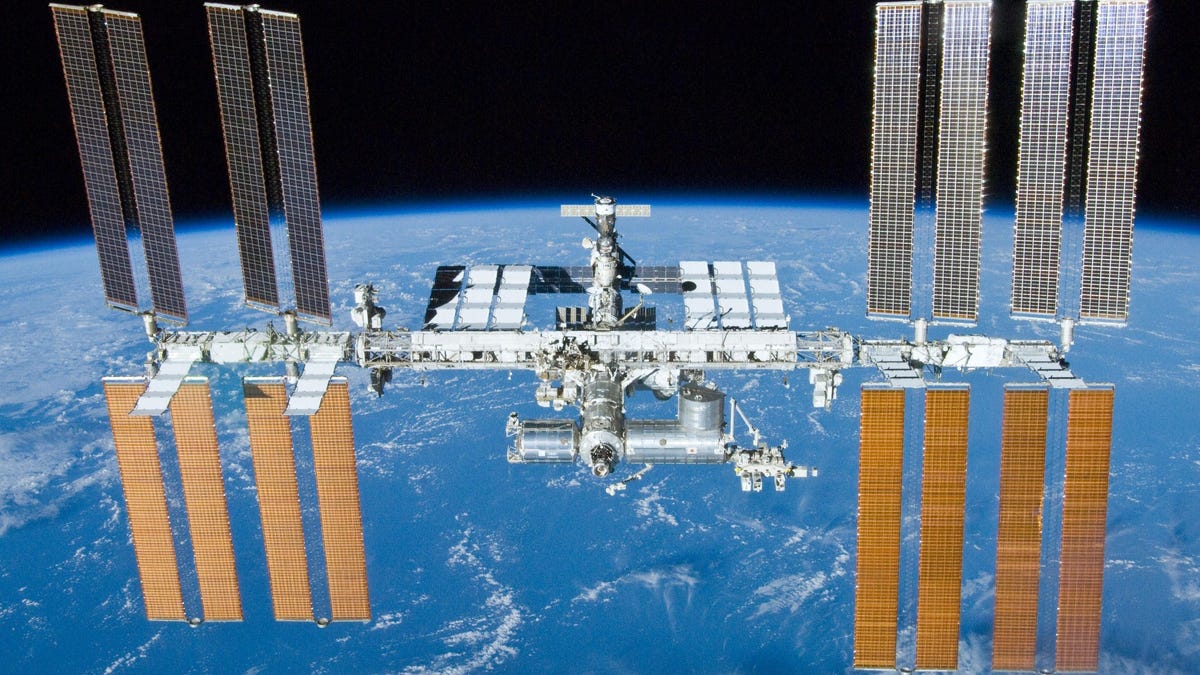Cosmonauts drill into ISS to repair air-leak cracks
A pesky leak in a Russian module of the International Space Station is finally getting a fix.

The ISS crew chased down a small but persistent air leak to the Russian-built Zvezda service module in 2020.
A troublesome air leak on the International Space Station may finally get a permanent fix. The small but persistent leak led the ISS crew on quite a chase as they traced the culprit to the Russian-built Zvezda Service Module in 2020. Roscosmos cosmonauts pulled out a drill to help with the repairs.
The minor leak appears to have been caused by two tiny cracks in the module's transfer chamber. The chamber includes a docking port for spacecraft. In a statement last week, Roscosmos said one of the cracks was less than an inch long.
Russia currently has two crew members, Sergey Ryzhikov and Sergey Kud-Sverchkov, on the station.
While drilling into the space station sounds dramatic, it has a practical purpose. "To seal the cracks, two types of sealing paste and sealing material are to be used," Roscosmos said. "The edges of the cracks will be drilled with a 3 millimeter drill to limit possible crack growth."
The cosmonauts will complete the repair using a sealing paste and a reinforced patch. Once repairs are complete, the crew will perform a leak check of the transfer chamber to make sure everything is fine. Photos of the site and the metal scraps from the drilling will be sent back to Earth for analysis as specialists on the ground try to work out what caused the cracks.
As of Monday, the cosmonauts were still working through the repair process. Said NASA in a statement last week, "The crew is in no danger, and the space station has ample consumables aboard to manage and maintain the nominal environment."
Follow CNET's 2021 Space Calendar to stay up to date with all the latest space news this year. You can even add it to your own Google Calendar.

